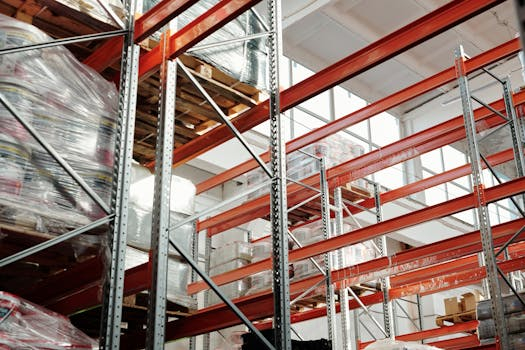The Reality of Working in Logistics and Supply Chain
The logistics and supply chain industry is a vital part of modern business operations. It involves the planning, implementation, and monitoring of goods and services as they make their way from production to the hands of the end consumer. From raw materials to finished products, the logistics and supply chain process involves a complex network of people, systems, and technologies. However, as much as it is an essential aspect of business, the reality of working in this industry is often overlooked. In this article, we will delve into the reality of working in logistics and supply chain, discussing both the perks and challenges that come with it.
The Thrill of Constantly Evolving Technology
In the world of logistics and supply chain, technology is constantly evolving. From automation and robotics to artificial intelligence and blockchain, these innovations are transforming and streamlining the industry. For those working in this field, staying updated with emerging technologies and learning how to incorporate them into daily operations can be both exciting and challenging. It allows for continuous learning and growth, making the logistics and supply chain industry an intellectually stimulating career path.
The Pressure of Meeting Tight Deadlines
Logistics and supply chain professionals are often under immense pressure to meet tight deadlines. With consumers demanding faster and more efficient delivery of goods, supply chain managers and coordinators are responsible for ensuring that products are delivered on time. This requires a great deal of coordination and planning, as well as the ability to handle unexpected problems and delays. The constant pressure to meet deadlines can be overwhelming and demanding, making this industry not suitable for those who thrive in a slow-paced environment.
The Importance of Collaboration and Communication
In the logistics and supply chain world, collaboration and communication are key. With so many moving parts, effective teamwork is crucial for the smooth running of daily operations. Whether it’s coordinating with manufacturers, suppliers, transporters, or warehouse personnel, communication is essential to ensure that everyone is on the same page. Collaboration is also necessary when dealing with unforeseen challenges or disruptions to the supply chain. This emphasis on teamwork and communication makes working in the logistics and supply chain industry a highly social and dynamic experience.
The Physical Demands of the Job
While advancements in technology have reduced the physical demands of working in the industry, the logistics and supply chain field is still physically demanding. Warehouse workers, for example, are often required to move heavy items and operate machinery. Delivery drivers may have to work long hours and drive long distances in various weather conditions. Supply chain managers and coordinators also often work long hours and must be available to handle any issues that may arise outside of regular working hours. The physical demands of the job can take a toll on individuals, making it important to maintain a healthy work-life balance.
The Career Advancement Opportunities
The logistics and supply chain industry offers numerous career advancement opportunities. As individuals gain experience and acquire new skills, they can move up the ladder to more senior positions with higher pay and more responsibilities. These opportunities are not limited to one specific area, making it possible for individuals to explore different aspects of the industry and find their niche. Additionally, as the industry continues to grow and evolve, there will be a constant need for skilled professionals, providing job security and stability.
The Constant Need for Adaptability
The logistics and supply chain industry is subject to constant change. Market trends, consumer demand, and technological advancements all have an impact on how things are done. As a result, professionals in this field must be adaptable and able to quickly adjust to these changes. This may involve learning new skills, adopting new processes, or even changing career paths within the industry. The ability to adapt is necessary to not only survive but thrive in the ever-changing logistics and supply chain landscape.
The Rewards of Making an Impact
Last but certainly not least, working in logistics and supply chain can be rewarding in terms of impact. The successful delivery of goods and services has a direct impact on the satisfaction of customers, the growth of businesses, and the economy as a whole. Knowing that one’s efforts are making a tangible impact and contributing to the success of a company or industry can be fulfilling and motivating.
In conclusion, the reality of working in logistics and supply chain involves a combination of challenges and rewards. It requires a balance of technical skills, adaptability, teamwork, and the ability to thrive in a fast-paced environment. With the ever-evolving nature of the industry, this field offers opportunities for continuous growth and development. For those who are up for the challenge, a career in logistics and supply chain can be both fulfilling and rewarding.











